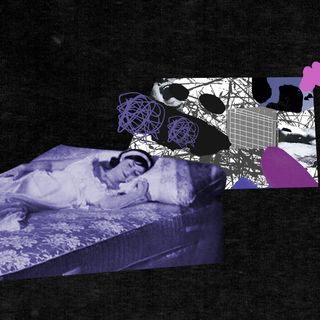Silver linings are rare if one is stuck at home under a pandemic-induced lockdown. But I’ve found one: a tidal wave of spending. There’s no better time to be teetering towards going broke from snacks, more snacks, and ‘self-care’ gifts we don’t really need. Buying things while quarantined is a quick, low-energy and easy way to pass the time, especially when minutes seem to last as long as hours.
Even when we’re not spending, we’re thinking of it — consistently browsing catalogs of furniture, clothes, fancy snacks, tech, and whatever other things catch our fancy. Losing time browsing through online shopping catalogs isn’t a new phenomenon, but its definitely exacerbated while one is stuck at home with nothing to do.
While the thought of buying something new isn’t the worst — actually buying things has long subbed as a cure for tiresome, unrelenting boredom — the act of buying things is problematic. Buying is the sort of quick-fix coping mechanism that doesn’t help much, drains your finances and more importantly, can put delivery workers — now deemed essential services — at risk for frivolous purchases.
Related on The Swaddle:
Why Some People Get Bored More Than Others
Thinking of the things you’d buy, and the things you’d do with the things you’d buy, is a pleasant sliver of hope to hold onto when a pandemic with no cure hovers over our heads. “We imagine ourselves either wearing the new outfit or using a new product, and when we think about that, we envision ourselves being happier. … It gives us a temporary boost just imagining it,” Amy Morin, a psychotherapist and author of 13 Things Mentally Strong People Don’t Do, told Refinery29.
However, actually spending erratically rather than merely thinking about it fails, because retail therapy is a coping mechanism, not an actual solution for the boredom or loss of control one is experiencing. Most often, retail therapy is an attempt to mask denial — we don’t want to accept the situation that we’ve found ourselves in, whether it be the larger implications of the pandemic or living home with a particularly sour family member. In fact, an Indiana University study stated that compulsive shopping leads to a high quite similar to that of using drugs. Plus, the high derived from retail therapy is temporary, quite like drugs, making us buy more and more until we’re drowning in debt, unsatisfied, and still in denial with respect to what’s wrong. Plus, spending too much while on a fixed income while quarantined during the Covid19 pandemic can lead to a shortage of money for higher-priority spending, like on groceries.
Online shopping while quarantined also puts us and those delivering our products to us at risk of catching Covid19 due to community transmission. While we can avoid an impulse, those employed with large corporations could find it harder to refuse going out to deliver products, for fear of losing their livelihood.
Alleviating dissatisfaction by impulse-buying while stuck at home isn’t going to help us cope, plus, while asking a delivery person to put their health at risk for a new dress isn’t ideal. There’s a world of stuff to do, and if you’re bored of all that, there’s always just window shopping.




